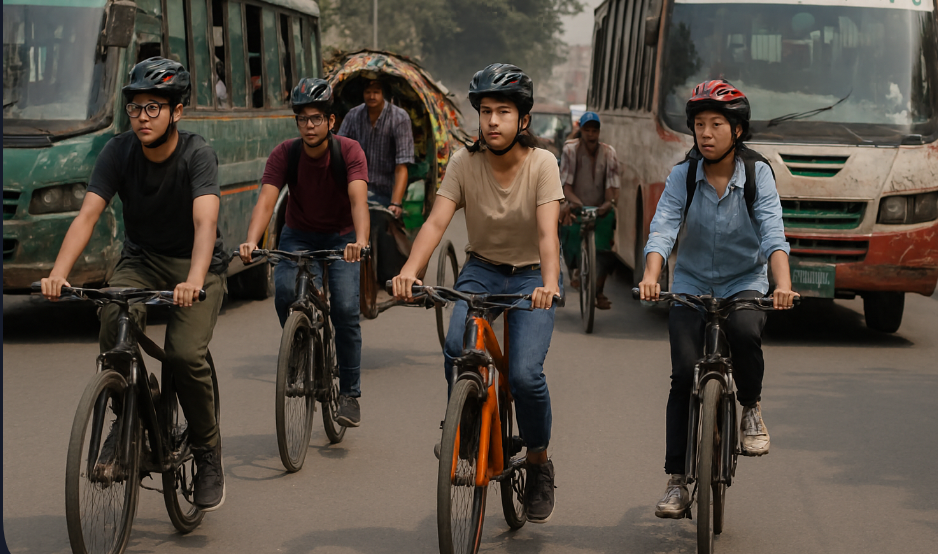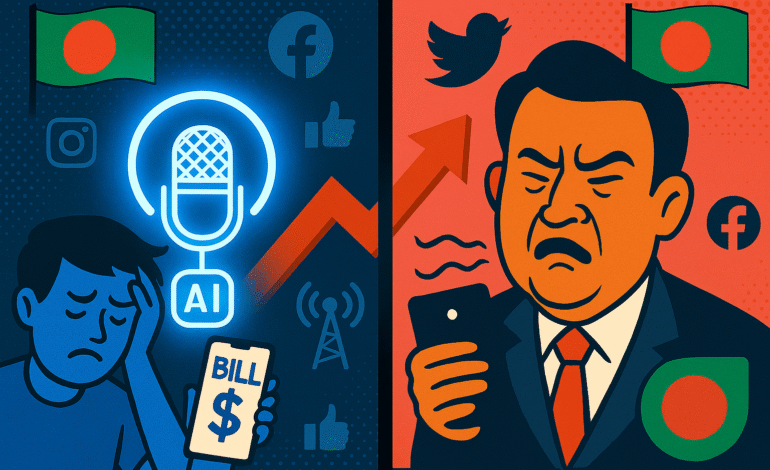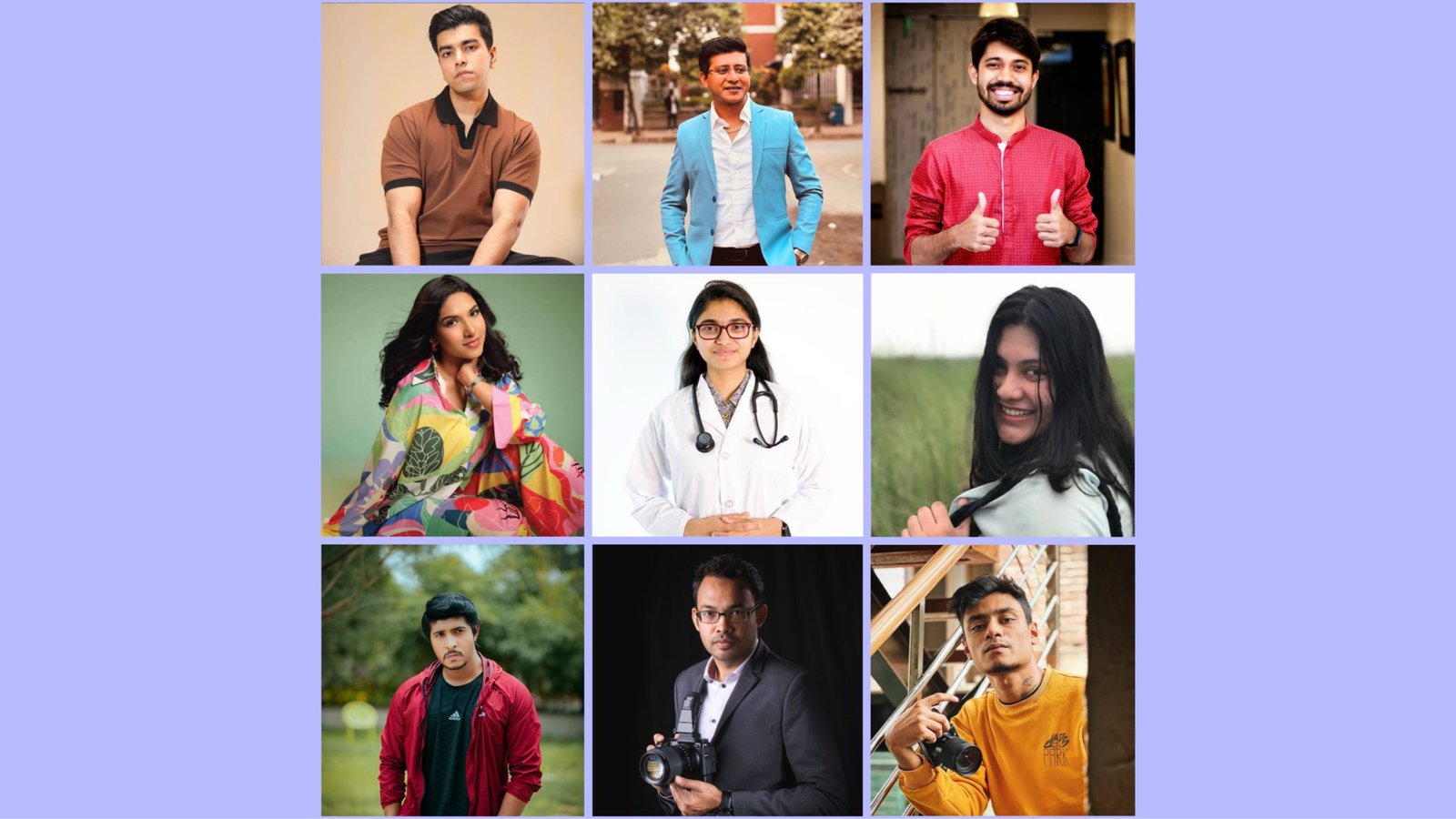AI Political Content in Bangladesh
The rise of AI political content in Bangladesh has become one of the most debated topics ahead of the 2025 national elections. Social media platforms are flooded with AI-generated videos, voiceovers, and even deepfake-style content. Some are humorous parodies, while others are carefully designed to influence political opinion. As the trend grows, the central question arises: Is this innovation in political communication or manipulation of democracy?
The Rise of AI in Political Messaging
In the last few years, AI political content in Bangladesh has expanded rapidly. What began as simple text-based tools has evolved into realistic voiceovers, lifelike avatars, and video manipulation. Political groups now experiment with synthetic media to reach audiences more effectively.
The appeal is obvious. AI saves time and money. Instead of expensive production, campaigners can now generate compelling content within hours. However, this convenience also comes with risks. AI-driven political messaging blurs the line between creativity and deception.
Why AI Political Content is Trending in Bangladesh
The 2025 election season has created the perfect storm for AI political content in Bangladesh. Citizens are highly active on Facebook, YouTube, and TikTok. These platforms reward content that spreads fast, regardless of accuracy. AI-generated clips and memes attract attention, entertain users, and spark debates.
At the same time, misinformation spreads just as quickly. A video may look real, even when it is not. This raises questions about how well voters can distinguish fact from fiction. The lack of strong media literacy makes Bangladesh especially vulnerable to manipulation.
The Role of Satire and Creative Expression
Not all AI political content in Bangladesh is harmful. Many creators use AI tools to make satire and parodies of political leaders. Humor has always been a powerful form of political commentary. AI now adds another layer to it, allowing creators to exaggerate, remix, and play with political narratives.
Satirical videos can promote critical thinking. They challenge authority, expose flaws, and give citizens a chance to laugh at the powerful. However, satire also risks crossing ethical lines when audiences cannot tell if a video is a joke or reality.
Risks of Deepfakes and Misinformation
The most alarming aspect of AI political content in Bangladesh is the rise of deepfakes. Deepfake technology allows people to create fake but convincing videos of politicians. These clips can be used to spread lies, damage reputations, or incite unrest.
A manipulated video of a politician making false statements could go viral in minutes. By the time it is proven fake, the damage is already done. This misuse of AI undermines democracy and destroys trust in information sources. Studies by Brookings highlight how deepfakes can destabilize political systems worldwide.
Digital Literacy: Can Citizens Tell the Difference?
For AI political content in Bangladesh, the biggest challenge is whether people can identify synthetic content. Digital literacy remains limited in rural and semi-urban areas. Many users believe what they see on social media without verifying it.
Media experts argue that schools and universities should include digital literacy in their curriculum. Teaching citizens to recognize manipulated videos is just as important as teaching them to read. Initiatives like UNESCO’s Media and Information Literacy program can guide Bangladesh in developing such frameworks.
Calls for Regulation and Accountability
The rapid growth of AI political content in Bangladesh has sparked debate over regulation. Should the government introduce laws to monitor AI-generated political material? Should platforms like Facebook and YouTube take stronger responsibility?
Some argue for strict regulation to stop manipulation. Others warn that heavy control may silence creativity and freedom of expression. A balanced approach is necessary. Bangladesh could look at models from the European Union’s AI Act or India’s proposed digital content laws. These frameworks aim to reduce harm without stifling innovation.
Ethical Storytelling in Political Campaigns
Political campaigns rely on storytelling. With AI tools, this storytelling can be more engaging but also more manipulative. Ethical use of AI political content in Bangladesh requires transparency. Politicians should declare when they use AI-generated media. Voters deserve to know if a video is real or synthetic.
Campaigns must also avoid using AI to mislead or spread hate. The purpose of AI in politics should be to inform and engage, not deceive. Ethical guidelines can help ensure that innovation does not become exploitation.
Impact on Democracy and Public Trust
The core issue with AI political content in Bangladesh is its impact on democracy. A healthy democracy depends on informed voters. If people are constantly exposed to manipulated media, their decisions may no longer be based on facts.
Trust in politicians, institutions, and even the media may collapse. When citizens cannot trust what they see, cynicism grows. This is why experts emphasize the importance of accountability. Without it, AI risks becoming a tool for manipulation rather than progress.
Possible Path Forward for Bangladesh
Bangladesh can still turn the rise of AI political content into an opportunity. Strong digital literacy programs, transparent campaign practices, and smart regulations can reduce risks. Civil society organizations, universities, and journalists must work together to raise awareness.
The government should also invest in fact-checking initiatives. Platforms like BD Fact Check show how local organizations can counter misinformation. Collaboration between the state, media, and technology experts will be key to maintaining trust in democratic processes.
AI political content in Bangladesh: Innovation or Manipulation?
The debate over AI political content in Bangladesh is far from over. On one side, AI opens doors for creative political expression and accessible communication. On the other, it creates opportunities for manipulation, misinformation, and mistrust.
The future depends on how Bangladesh chooses to respond. Will the country use AI as a tool for democratic engagement or allow it to become a weapon of deception? The answer lies in collective responsibility, ethical use, and informed citizens.








